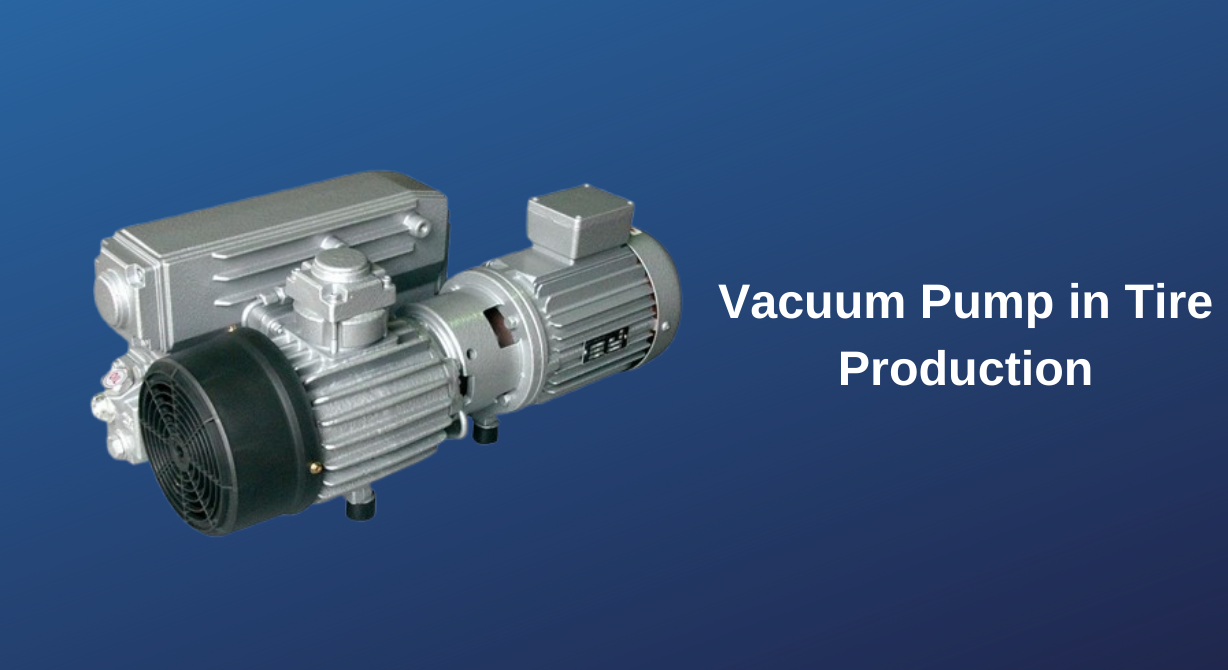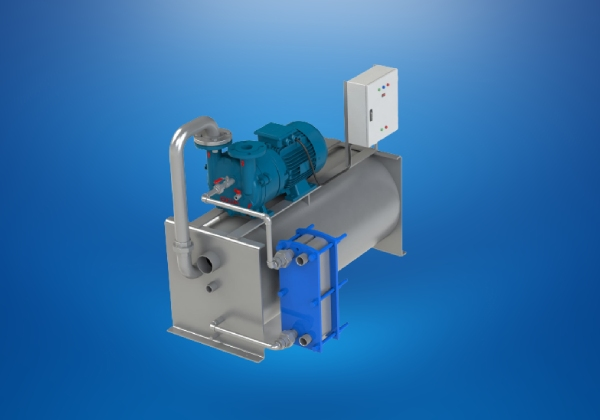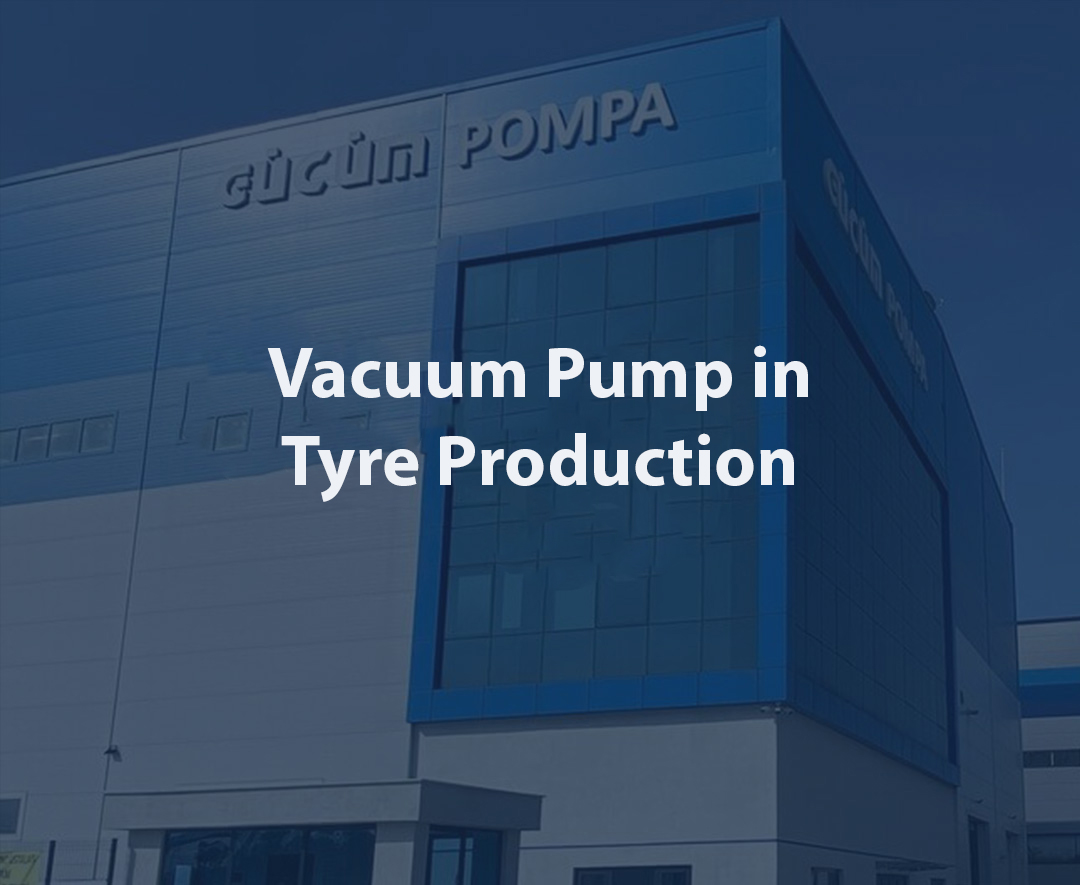Vacuum Pump in Tyre Production
-
What is Vacuum Pump in Tire Production?
-
Why Might We Need a Vacuum Pump in Tire Manufacturing?
-
Advantages of Vacuum Pump in Tire Production
-
How to Use Vacuum Pump in Tire Manufacturing?
What is Vacuum Pump in Tire Production?
In tire manufacturing, a vacuum pump plays a crucial role as a specialized equipment. Vacuum pumps are utilized to prevent the formation of air bubbles during the pouring of tire compound into molds, ensuring homogeneity and enhancing the quality of the final product. This is essential for improving the overall quality and desired characteristics of the tire.
The primary functions of vacuum pumps in tire production include:
Eliminating Air Bubbles
Vacuum pumps remove air bubbles that may form when pouring tire compound into molds. This ensures a homogeneous structure, ultimately enhancing product quality.
Shaping the Tire Compound
Vacuum pumps assist in giving the tire compound the desired shape within the molds, contributing to the predetermined characteristics of the tire.
Assisting in Mold Filling
Vacuum pumps aid in the more effective pouring of the tire compound into molds, reducing air bubble formation and contributing to a more homogeneous structure.
Enhancing Product Quality
The use of vacuum pumps improves overall product quality by increasing durability and performance.
These functions underscore the critical role of vacuum pumps in the tire industry, acknowledged as vital equipment for ensuring a quality and stable production process.
 Why Might We Need a Vacuum Pump in Tire Manufacturing?
Why Might We Need a Vacuum Pump in Tire Manufacturing?
In the tire industry, a vacuum pump is a crucial element in the tire production process, determining product quality through essential steps. The need for a vacuum pump arises from its ability to address potential issues during the pouring of tire compound into molds, enhance product homogeneity, and ensure durability.
Preventing Air Bubbles
A vacuum pump eliminates air bubbles that may form during the pouring of tire compound into molds. This results in a homogeneous structure and increased product quality.
Shaping and Distribution
The vacuum pump ensures the even and smooth placement of the tire compound into molds, allowing the tire to take the desired shape and improving overall homogeneity.
Energy Efficiency
Additionally, the use of a vacuum pump can increase energy efficiency. Minimizing air bubbles reduces energy losses during the production process, contributing to an environmentally friendly manufacturing process.
SEO-Compatible and Shareable Expression
A vacuum pump is a key element in enhancing product quality in the tire industry. This production step improves the durability and performance of tires. Making informed decisions by staying updated on detailed information and current technological trends in choosing the right vacuum pump provides a competitive advantage for tire manufacturers. The selection of a vacuum pump is crucial to achieving energy efficiency and meeting environmentally friendly production goals.
Advantages of Vacuum Pump in Tire Production
There are numerous advantages to using a vacuum pump in the tire industry. These advantages are crucial for improving product quality, optimizing the production process, and ensuring energy efficiency.
Eliminating Air Bubbles
A vacuum pump effectively removes air bubbles during the pouring of tire compound, contributing to a homogeneous structure and improved product quality.
Product Homogeneity and Quality
The vacuum pump ensures a more even and uniform placement of the tire compound into molds. This results in the tire taking the desired shape and increases homogeneity, elevating quality standards.
Energy Efficiency
Reducing air bubbles contributes to minimizing energy losses during the production process, increasing energy efficiency and supporting an environmentally friendly manufacturing process.
Reducing Errors in the Production Process
The use of a vacuum pump reduces potential errors and defects in the production process, leading to more consistent and reliable products.
Fast and Efficient Shaping
Vacuum pumps facilitate the quick and efficient shaping of the tire compound in molds, accelerating the production process and improving efficiency.
Environmentally Friendly Production
The use of a vacuum pump, combined with increased energy efficiency, supports environmentally friendly production practices. Reduced energy consumption helps lower the carbon footprint.
Competitive Advantage
Incorporating vacuum pump technology provides tire manufacturers with a competitive advantage. Delivering high-quality and flawless products enhances customer satisfaction and positions manufacturers ahead in market competition.
In conclusion, the use of a vacuum pump in tire production offers several advantages, not only in enhancing product quality but also in contributing to energy efficiency and sustainable production practices. These advantages provide tire manufacturers with the means to establish a sustainable and competitive production process.
 How to Use Vacuum Pump in Tire Manufacturing?
How to Use Vacuum Pump in Tire Manufacturing?
The use of a vacuum pump in tire production is a critical stage. This process aims to eliminate air bubbles during the pouring of the tire compound into molds, enhancing product quality. Initially, the raw materials for the tire are mixed in specified proportions to obtain an appropriate formula.
Once the vacuum pump is activated, it efficiently removes air bubbles from the tire compound, filling voids and achieving a homogeneous structure. This stage ensures that the tire conforms to predetermined quality standards. Additionally, the use of a vacuum pump increases energy efficiency by minimizing production-related energy losses.
Temperature and pressure control are crucial during the operation of the vacuum pump. Proper temperature and pressure levels ensure the even placement of the tire compound into molds, resulting in a product with the desired characteristics. In the final stage, after the completion of vacuum application, the tire is cooled, and the molds are opened to reveal the finished product.
The utilization of a vacuum pump in tire production contributes to improving product quality while supporting energy efficiency in the production process. This method, successfully applied in the tire industry, provides significant advantages in terms of product quality and sustainability.
This text provides comprehensive information about the role, necessity, advantages, and usage of vacuum pumps in tire production. It highlights the importance of this technology in ensuring high-quality, efficient, and environmentally friendly manufacturing processes in the tire industry.
